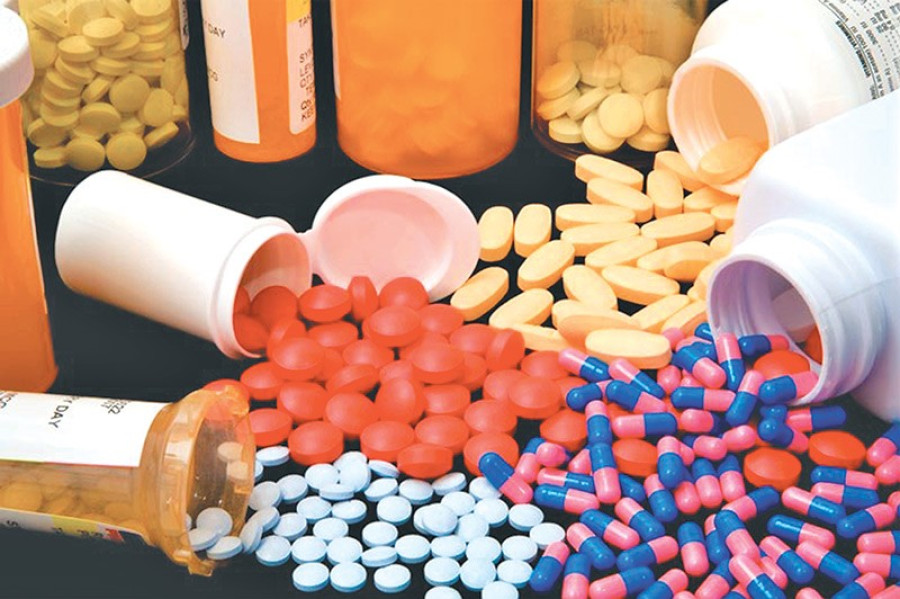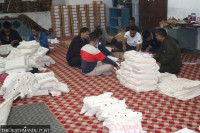National
Health Ministry mulls policy framework to ensure quality medicines
The Ministry of Health and Population has proposed a policy framework to ensure the purchase of quality medicines at a reasonable price, which it hopes will be a guideline to the workings of a particular policy for the benefit of the consumers.
Arjun Poudel
The Ministry of Health and Population has proposed a policy framework to ensure the purchase of quality medicines at a reasonable price, which it hopes will be a guideline to the workings of a particular policy for the benefit of the consumers.
Under the policy framework, the agencies under the Health Ministry are expected to play a bigger role in the procurement of essential medicines, vaccines and other equipment. The agencies will also be working in close coordination with the local and provincial governments, according to Ramesh Adhikari, director at the Management Division under the Department of Health Services.
“We have sent a policy framework proposal to the Public Procurement and Monitoring Office under the Ministry of Finance for endorsement,” Adhikari told the Post.
Many local level and provincial governments could not purchase essential medicines on time, which had forced patients to buy medicines from private dispensaries at a higher cost. Some local level were also found guilty of purchasing medicines without taking its quality into consideration.
Adhikari said, “Some local units purchased medicines from private dispensaries, out of desperation, paying ten times more than they should have.”
Earlier, the Health Ministry used to purchase medicines in bulk through global tenders and distribute them to health facilities and health care centres throughout the country. Agencies concerned under the ministry would run quality checks before the shipment of medicines and essential drugs, and maintain reports of the same after the shipment.
Officials would also visit the factories of respective companies receiving tenders for bulk supply of medicines and essential drugs to keep tabs on them.
However, the formation of the local and provincial governments, under the federal structure, meant that the Health Ministry started allocating and dispersing budget directly to the local and provincial governments for procurement of medicines and other essential drugs for their respective provinces and local units.
Mahendra Prasad Shrestha, spokesperson for the Health Ministry, said, “Ever since the provincial and local governments started procuring medicines and other necessary drugs themselves, there has been a certain level of compromise in the quality of their procurement. The local level and provincial governments do not have the facilities to check the quality of medicines supplied to them.”
According to Shrestha, earlier the agencies concerned of the federal government would assist the local and provincial governments in procurements.
Apart from medicines and essential drugs, the ministry had also allocated budget for the procurement of Vitamin A supplements and fortified flour to the provincial governments. But most of the provincial governments failed to procure those supplements and returned the budget to the Health Ministry asking the ministry to procure the medicines and essential drugs for them. Due to the inability of the provincial governments, the Health Ministry had requested UNICEF for Vitamin A supplements for a nationwide campaign launched in October 2018 and in April this year.
Shrestha said that the local governments are now forced to buy medicines and essential drugs from local pharmacies to stock up the health facilities as multinational companies do not contest bid for small amounts of tenders.
According to him, the local units have been spending huge amounts of money to purchase small amounts of essential medicines from local private pharmacies.
The government has committed to providing over 70 types of essential medicines free of cost to patients seeking health care services at district hospitals with 25-bed capacity across the country. Patients can get over 40 types of essential medicines free in the primary health care centres and 35 types of medicines in health posts throughout the country.
Every year the government allocates over Rs1 billion for essential medicines to be distributed free of cost from state-run health facilities




 16.33°C Kathmandu
16.33°C Kathmandu














